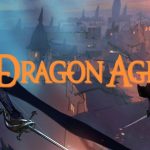Digging into the message and meaning behind Outer Wilds.
MAJOR SPOILER WARNING! This article discusses lots of details about Outer Wilds, including its end, so you should absolutely play through it before reading this. It also discusses some pretty real stuff about life, so make sure you’re ready to handle that too.
I don’t have many actual fears in life, but I am deeply afraid of death.
This is an uncomfortably personal thing for me to admit. It’s something I never really talk about and, to be honest, something I am mildly terrified to put down in writing at all. Despite generally being an upbeat, optimistic, and usually anxiety-free human being, thinking about death and the question of what happens after it is the one thing in this world that gives me genuine panic attacks.
I don’t know what happens after you die. The idea of just existing one moment and the next you don’t and how that would work and would you even know and all of those suffocating questions send me spiraling down into a dark void that’s sometimes hard to pull out of. Thinking about it as a real thing that will really happen to me one day is, simply put, debilitating – and my coping mechanism to escape that petrification over the years has often been video games.
I don’t just mean playing them – which I do also just because, ya know, they’re fun – but by borrowing their vocabulary for death as well. In games, death isn’t a scary, unanswerable question. It’s a mechanic. Something that can be understood, subverted, and controlled, and it doesn’t actually mean the end if you just want to start again.
But because I know death is a very real part of actual life, I escape into a language that games have made me familiar with to put off the unanswerable questions of that reality. I hide in irrational but comforting thoughts like “maybe you have extra lives” or “maybe you wake up and life has been a VR game all along” or the classic under-30 staple of “maybe I’ll upload my brain and live forever.”
“
In games, death isn’t a scary, unanswerable question. It’s a mechanic. Something that can be understood, subverted, and controlled.
I know this isn’t how the world works, but I use these fantasies to avoid a truth that my mind just can’t rationalize right now. They make the darkness seem a little less pitch black, and they make me laugh and smile the way the games they come from often do – and who knows, maybe life is actually one big game after all! It may be childish, but it’s a form of denial that keeps me balanced when my brain starts to wander too far into the void.
But ever since I beat Outer Wilds, my mindset has been changing. I’ve already written about how it is full of constantly awe-inspiring moments, a game that you should absolutely play without spoilers – so, seriously, if you haven’t played it then stop reading here and go do that. But I’m amazed to see that it may be having an actual positive effect on my brain even three weeks after I rolled credits.
Shortly after I finished Outer Wilds, someone asked me what I thought the overall message was. Mulling that question over and the answer I eventually landed on flipped a switch in my head that is making me slowly and carefully – and for the first real time in my life – want to stop hiding from death. Because even though it’s never overtly stated, Outer Wilds is a game fundamentally about accepting death.
The message of Outer Wilds (as I interpreted it) is ultimately this: We’re all going to die. Do what you want, go where you want, see what you want, but it’ll come eventually. You can fight it or put it off or deny it entirely, but what you do with the time you have and who you choose to spend it with is more important than where we all end up.
“
Outer Wilds camouflages itself in the expectations people form from playing other games.
Outer Wilds’ time loop is the bluntest representation of this, obviously. You’re literally killed every 22 minutes and you’ve just gotta get used to that. That itself can make for some hauntingly reflective moments, as you either frantically fight for just a few seconds longer to finish up whatever you were doing or simply sit peacefully and watch the sun explode.
But it wasn’t until I actually beat Outer Wilds that I realized how much I was missing the entire point. You can’t “win” here. Nearly every video game (excluding endless ones like score attack games) teaches you to get up and try again, that this time you can win, and that if you play the right way then death, a game over, or whatever it is can eventually be avoided.
Outer Wilds camouflages itself in that expectation. You’re never given an explicit goal, but you know the sun is exploding over and over, so your information-gathering expeditions start forming around the false concept of “I need to stop this.” As you explore more Nomai landmarks, you inevitably start learning about how to find the Eye of the Universe and where to find an Advanced Warp Core, and of course, you start forming an escape plan.
The incredible part is that you’ll achieve that plan! You’ll gather those pieces, assemble the puzzle, and make it to the Eye! But that’s where Outer Wilds’ magical and truly lovely finale delicately pulls the rug out from under you. Because even though it’s a fantastic end to an incredible game, it’s one where “winning” by saving the day isn’t actually an option.
The whole time I was playing I thought reaching the Eye would let me stop the end of the universe, stopping death – and I don’t think it’s a coincidence that the very thing I thought would do that was similarly being worshipped as some sort of god by the Nomai. But even when you get there, the sun still explodes, the universe still ends, and life springs anew 14.3 billion years later with or without you. The goal post here was never to stop or escape death as I assumed, it was just to find a peaceful place to sit and sing a song while it all plays out.
“
Games like Dark Souls or Dead Cells get you accustomed to dying, but it’s a denial of death rather than an acceptance, and always under the pretense of coming back.
This is so completely different from what other games teach you, even other games that repeatedly kill you. Merciless games like Dark Souls or roguelikes like Dead Cells get you accustomed to the concept of dying a lot, but it’s a denial of death rather than an acceptance, and always under the pretense of coming back. There’s always one more try, and the assumption is that doing so will help you subvert death by reaching the end. Even in games where your character does die in the end, it’s often a sacrifice to save (or defeat) something else. It’s still a victory.
That’s not what Outer Wilds teaches you. In the most serene way it can, Outer Wilds makes you stare that inconceivable idea of death and the fear of the unknown that comes after it in the face. You rage and fight and die and repeat and try to keep things from going wrong, and the game eventually gently takes your hand and quietly whispers “good job, you did it, now just relax and think about all the adventures you had and all the lovely people you met on the way here, because this isn’t a fight you can win.” And you calm down, enjoy the moment, and then it ends.
So much of this game represents the journey of life itself. In any given loop, you can go anywhere and see anything, and even though you’ll surely be missing out on something spectacular elsewhere in the world, there’s probably something great right in front of you too. People to meet, things to learn, challenges to conquer, and different ways of coping with the inevitability of it all – be it Gabbro’s quiet meditation or Chert’s feverish meltdown.
These members of the Outer Wilds space company each go out, pick a planet to explore, and literally put down roots. Despite being about accepting death, this is also a game about making the most of the time you have. And more than that, leaving something behind for those that come after you, because life will come after you regardless of whether you accept the end or not – as seen in both the Nomai discovering an unevolved form of your species and you literally seeing a new universe had formed after the end credits.
“
Despite being about accepting death, Outer Wilds is also a game about making the most of the time you have.
Even the Nomai’s ancient stories reflect this. Reading their texts reveals that they fought as hard as they could to find the Eye, failed, and in the end, something entirely unrelated and unexpected (the Interloper) swooped in like a cancerous tumor and brought death with it – metaphoric imagery that could warrant a whole article of its own. But hidden in their long-dead tales of struggle are ones of love and coming of age and, of course, the occasional bad pun.
In fact, there’s even a built-in warning against the idea of “winning” against death in the Nomai named Solanum, stuck forever in limbo on the Quantum Moon. With the moon being both in and out of the solar system when the Interloper exploded, she both died and didn’t – an effect you can actually replicate yourself by staying on the sixth location of the moon when the sun explodes. You don’t die, but living forever leaves you lost in time like her, and is that really better?
Outer Wilds’ messages have had a surprisingly profound impact on me. Speaking frankly, I used to push thoughts of death out of my head as fast as they cropped up, enjoying what’s in front of me now and deciding to worry about what I can’t change another time. I’ve always lived with the philosophy that what you do with the time you have is important, but Outer Wilds has encouraged me to actively challenge the ways I’ve been coping with my fear of what comes after instead of hiding from it.
I’m incredibly thankful for the tools video games have offered me to better understand my own life, the lives of others, and even death, but Outer Wilds feels different. It uses the same language as every other game out there, but only enough to trick me into thinking a little bit deeper about the frequently hollow language they use when it comes to a very real – and still altogether terrifying – fact.
I’d be lying if I said I am now 100% A-okay and have accepted my own mortality just by playing this video game. For example, I started writing this article after getting out of bed at midnight in a cold sweat, and couldn’t fall asleep for at least an hour after stopping. This is a gradual shift for me, but Outer Wilds has me wanting to look the void in the eyes more directly (sometimes I’m even managing to do so without slipping into a panic) and I am eternally grateful for it at least starting me down that path.
Tom Marks is IGN’s Deputy Reviews Editor and resident pie maker, and he’s usually not this much of a bummer. Thanks for reading, and feel free to reach out to him on Twitter if you’d like to chat about it.
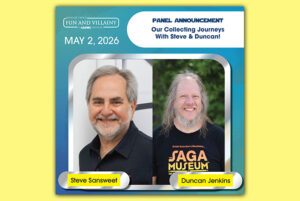


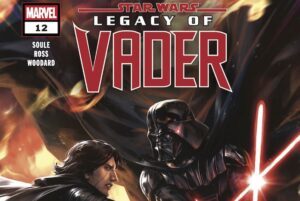
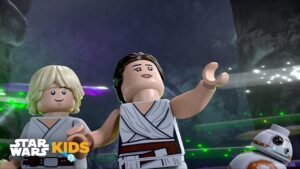
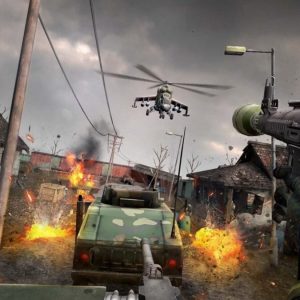
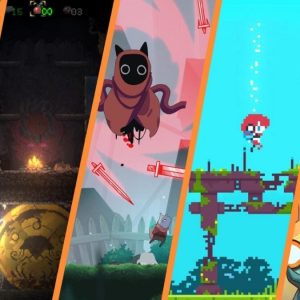

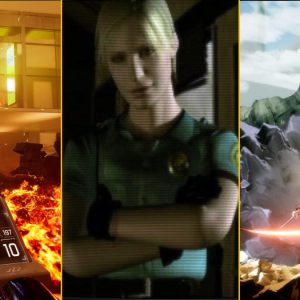
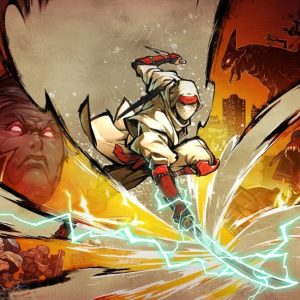





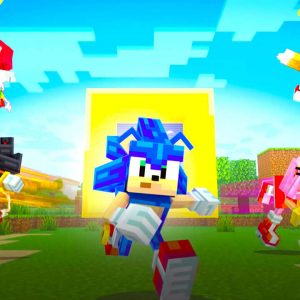
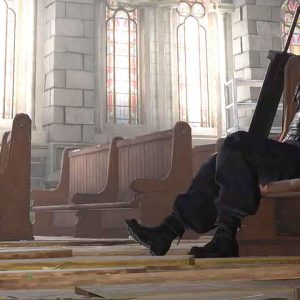

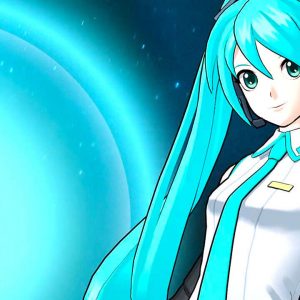
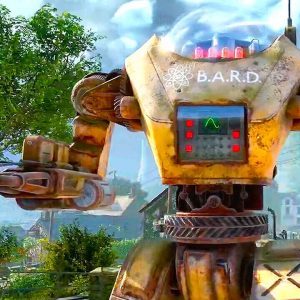

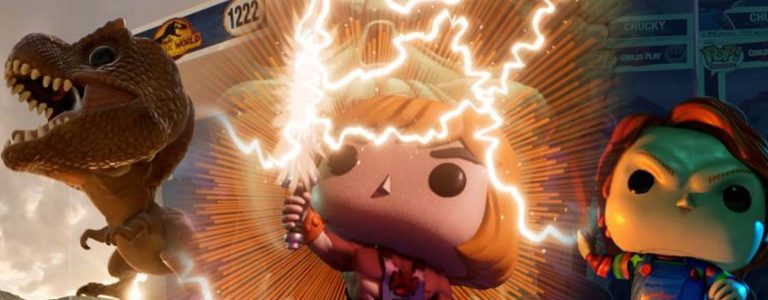
_wm-150x150.png)
